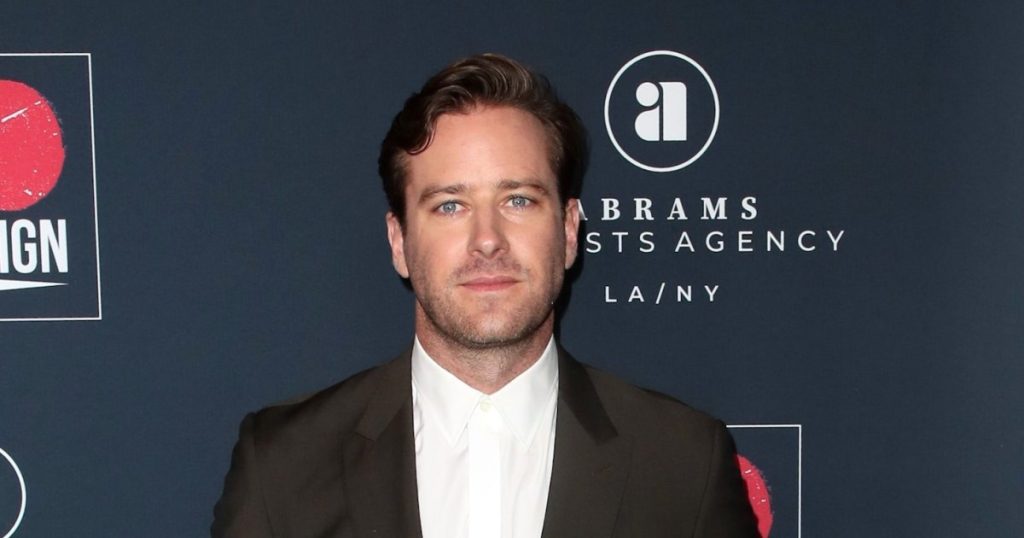In early 2021, actor Armie Hammer found himself at the center of a maelstrom of controversy, effectively ending his burgeoning Hollywood career. Accusations of rape by an ex-partner, coupled with the leak of unverified direct messages detailing graphic sexual fantasies, ignited a firestorm of public scrutiny. While Hammer vehemently denied the rape allegations, asserting that all his sexual encounters were consensual, and a subsequent Los Angeles Police Department investigation yielded no charges, the damage to his reputation was irreparable. Reflecting on this tumultuous period, Hammer characterized it as a “wild time,” attributing the intense public fascination with the scandal to a collective desire for distraction amidst the global anxieties of the COVID-19 pandemic. He posited that a salacious story about a Hollywood actor’s alleged cannibalistic desires offered a captivating escape from the pervasive sense of confinement and unease gripping the world.
The ensuing media frenzy, fueled by the virality of the allegations, catapulted Hammer to an unwanted level of notoriety. He recounted becoming one of the most searched individuals on Google, with the overwhelming majority of the coverage casting him in a negative light. Hammer described feeling exposed and vulnerable, his innermost desires and proclivities suddenly subject to public judgment. This experience, he acknowledged, was profoundly challenging, stripping him bare before a global audience and forcing him to confront the dissonance between his carefully cultivated public persona and the private fantasies he had indulged in. The actor seemed to acknowledge, at least implicitly, the authenticity of some of the graphic messages attributed to him, suggesting a level of personal reckoning with the content they contained.
Prior to the scandal, Hammer had enjoyed a meteoric rise in Hollywood, starring in critically acclaimed films like “The Social Network” and achieving mainstream success with blockbuster roles. Maintaining the pristine image expected of a rising star, however, proved to be a struggle. Married at the time to Elizabeth Chambers, with whom he shares two children, Hammer grappled with the disconnect between his public persona and his private self. He confessed to feeling like an outsider, an alien inhabiting the seemingly perfect world of a Hollywood power couple. Hammer’s social media activity, including “liking” rope bondage pictures on Twitter, became a form of subconscious rebellion, a “dog-whistling,” as he described it, for the exposure that would ultimately come crashing down upon him.
Hammer attributed this behavior, in part, to a desire to be caught, to shatter the carefully constructed façade of domestic bliss that he felt increasingly alienated from. The contrast between the “Ralph Lauren family” image projected to the world and his own internal turmoil became unbearable, driving him to subtly hint at his true nature through his online actions. He claimed a conscious awareness of the public visibility of his Twitter likes, suggesting that his behavior was a deliberate, albeit perhaps self-destructive, attempt to expose the disconnect between his public and private selves. This apparent cry for help, however, ultimately manifested in a form far more destructive than he likely anticipated.
Addressing the public interpretation of his leaked direct messages, Hammer maintained that his conversations were taken out of context. He argued that the intimate exchanges of any couple, even seemingly vanilla ones, could be easily misconstrued and appear shocking when removed from their private context and exposed to public scrutiny. This, he implied, was the unfortunate fate of his own private communications, which were dissected and sensationalized by the media and public alike. While acknowledging the potential for misinterpretation, he simultaneously asserted the normalcy of exploring fantasies within the confines of a consensual relationship, attempting to reframe the narrative surrounding his actions.
Elaborating on his sexual proclivities, Hammer openly discussed his interest in rope bondage, describing the appeal of complete control and possession within a consensual dynamic. He framed it as a playful exploration of power dynamics, emphasizing the consensual nature of these fantasies. He also acknowledged the tendency for such private conversations, often fueled by intoxication or recreational drug use, to be perceived differently when exposed to the harsh light of public judgment. He contrasted the lighthearted, often hyperbolic nature of late-night texts with the serious implications they carried when scrutinized by a public unfamiliar with the context and nuance of private communication. The juxtaposition of his personal interpretation and the public’s reaction highlighted the disconnect between private expression and public perception, a gap that ultimately contributed to the downfall of his career.

